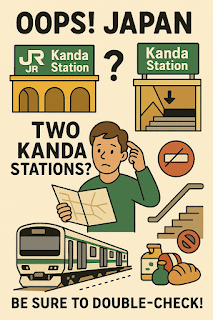Oops! Japan #49 — Don’t Dump Your Suitcase! (スーツケースを勝手に捨てないで!) Why Leaving Luggage Behind Is a Big Problem in Japan
Oops! Japan #49 — Don’t Dump Your Suitcase! (スーツケースを勝手に捨てないで!) Why Leaving Luggage Behind Is a Big Problem in Japan Japan is facing a growing issue with tourists abandoning old suitcases — especially in cities like Osaka. These large items can’t be thrown out like regular trash. They’re considered oversized waste, which: • Requires special procedures for disposal • May involve police checks for safety reasons • Costs the city millions of yen yearly (Osaka spent 110 million yen in 2023!) Hotels and Airbnb hosts are frustrated, as they often have to take care of abandoned luggage left behind by guests. 💡 What to do instead? • Ask your hotel or host to help you arrange proper disposal • Some hotels offer this service for 500 to 3500 yen • Don’t assume you can “just leave it” — it causes trouble One Reddit user put it clearly: “You can afford the vacation — but not 1000 yen to dispose of your trash?” ⸻ 日本語補足: 旅行中に古くなったスーツケースをそのまま日本に捨てて帰る人が増えており、特に大阪では大きな問題になっ...

